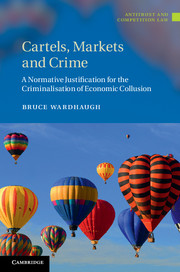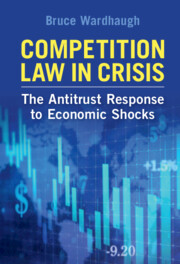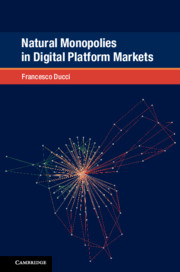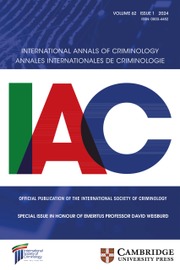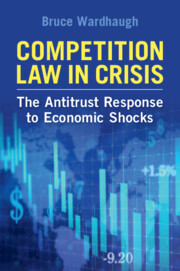Cartels, Markets and Crime
This study of the normative justification for the use of criminal sanctions as a means of cartel control goes beyond the historical and economic viewpoints by adding a normative evaluation of anti-cartel regimes and analysing cartel control in the USA, Europe and the UK. The analysis is unique in seeking to establish why, in a liberal society, criminal sanctions should apply to individuals who participate in this sort of activity. Although cartels have been rhetorically likened to theft and fraud, there are significant differences. Notwithstanding these differences, Cartels, Markets and Crime presents an argument for the criminalisation of economic collusion and, with this argument in mind, analyses the regimes of the USA, EU and UK and considers the possibility of global convergence.
- Presents a new justification for the criminalising of cartel activity
- Relates economic law to conceptions of social justice
- Goes beyond the traditional US- and EU-centric approach in discussing the internationalisation of competition law
Reviews & endorsements
'Cartels, Markets and Crime advances a normative justification of the criminalisation of cartel conduct based on Rawls' Theory of Justice. It is an interesting addition to the literature, much of which is dominated by law and economics theories and contentions.' Brent Fisse, Criminal Law and Criminal Justice Books (clcjbooks.rutgers.edu)
Product details
March 2014Hardback
9781107036307
376 pages
237 × 157 × 25 mm
0.68kg
2 b/w illus.
Available
Table of Contents
- Introduction
- 1. A normative approach to the criminalisation of cartel activity
- 2. Corporate responsibility, agency and the advantages of vicarious liability
- 3. Closing the deterrence gap: individual sanctions
- 4. The American experience of cartel control: values and effectiveness
- 5. The European experience
- 6. The UK experience
- 7. Internationalisation and transplantation
- Conclusion.

